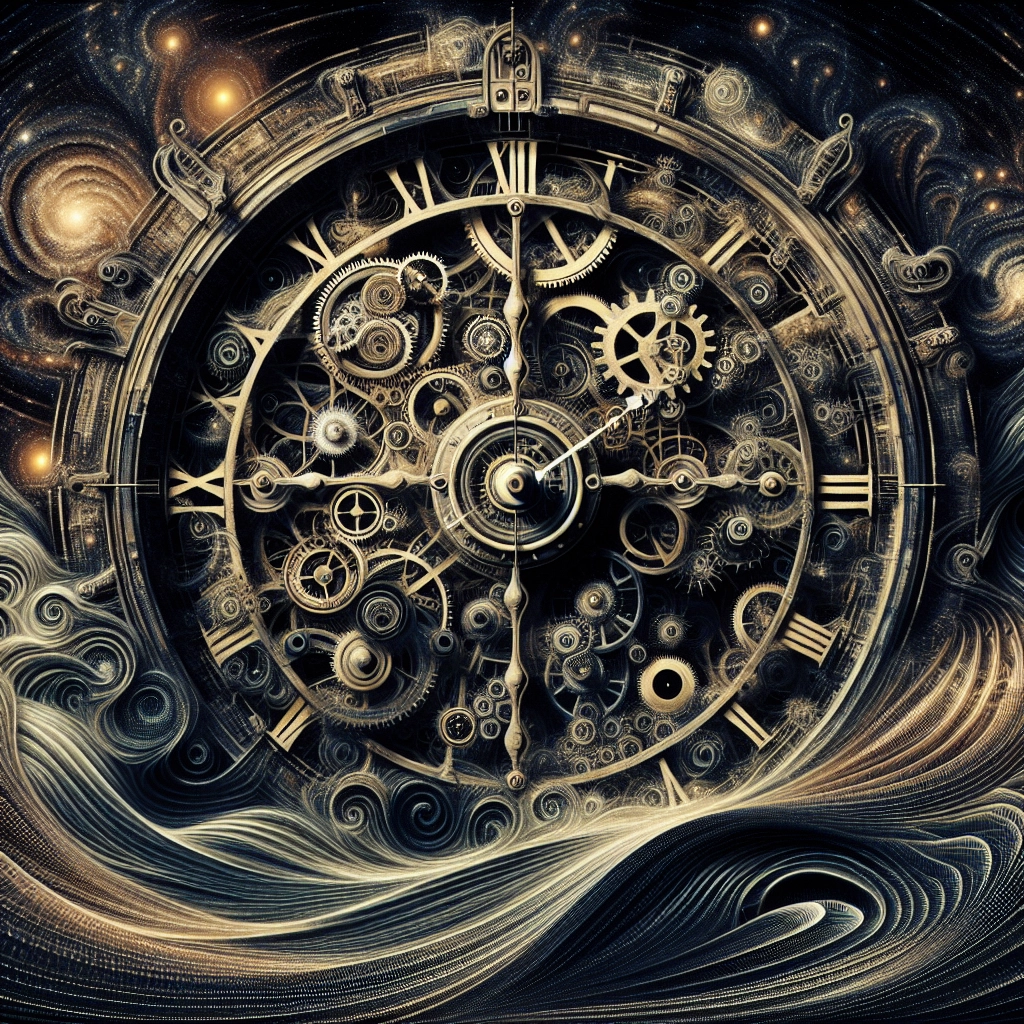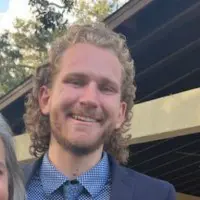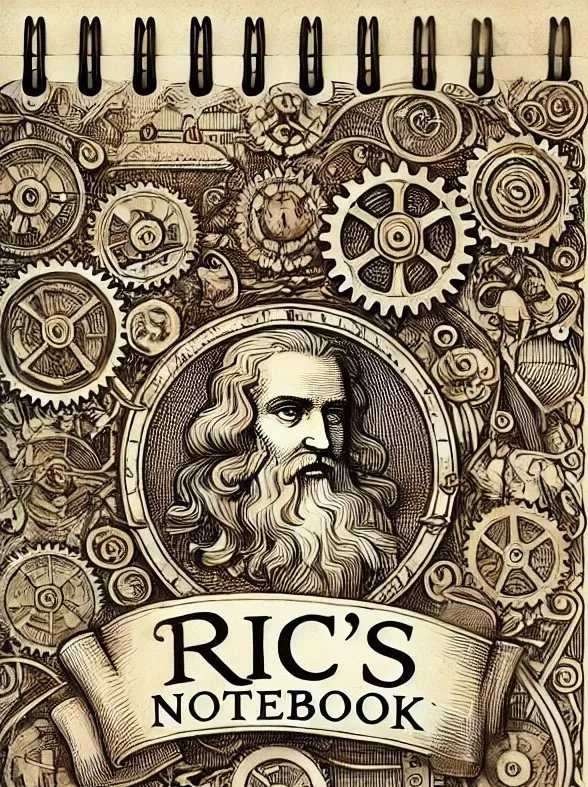
- Published on
- Authors

- Name
- ric de yuga 😄
🌌 The Quantum Dance of Reality
Reality, as we perceive it, is a complex tapestry woven from the threads of quantum theory and the fabric of relativity. At the heart of this intricate dance lies the concept of time – a dimension that shapes our existence and defines our perception of the world around us. Let's embark on a journey through the realms of physics to unravel the mysteries of time and its role in creating our reality.
🎭 The Quantum Stage: Entanglement and Reality Creation
Quantum theory reveals that the building blocks of our universe are not the solid, deterministic entities we once thought them to be. Instead, they are probabilistic waves of potential, existing in a state of superposition until observed. This peculiar behavior gives rise to the phenomenon of entanglement – a connection between particles that transcends the boundaries of space and time.
Entanglement suggests that the act of observation plays a crucial role in shaping reality. When we measure a quantum system, we collapse its wave function, forcing it to adopt a specific state. In essence, we participate in the creation of our own reality through the very act of perceiving it. This idea challenges our conventional notions of objectivity and highlights the intricate relationship between the observer and the observed.
⏳ Einstein's Relativity: Time as a Malleable Construct
Einstein's groundbreaking work on relativity revolutionized our understanding of time. According to special relativity, time is not an absolute constant but rather a relative experience that depends on the observer's frame of reference. As objects approach the speed of light, time dilates, slowing down relative to a stationary observer. This mind-bending concept shatters our intuitive notion of time as a fixed, universal entity.
Furthermore, general relativity reveals that the presence of mass and energy can warp the fabric of spacetime, creating gravitational distortions that alter the flow of time. This means that time can be stretched or compressed depending on the proximity to massive objects, such as black holes. The malleability of time challenges our perception of reality and forces us to reconsider the nature of this fundamental dimension.
🧩 The Quantum Theory of Relativity: Bridging the Gap
The quantum theory of relativity seeks to unify the principles of quantum mechanics and relativity, providing a comprehensive framework for understanding the nature of reality. This theory postulates that the fabric of spacetime itself is quantized, composed of discrete units known as "spacetime foam." At the Planck scale, the smallest possible scale in the universe, the distinction between space and time breaks down, giving rise to a dynamic, ever-fluctuating reality.
The quantum theory of relativity suggests that our perception of time as a continuous flow is an emergent property arising from the collective behavior of these quantum building blocks. It is our limited perspective, constrained by our macroscopic existence, that creates the illusion of a smooth, uninterrupted timeline. In reality, time may be a granular, discontinuous entity that manifests differently at different scales.
📿 Entanglement and the Illusion of Unified Time
The concept of entanglement further complicates our understanding of time. When particles become entangled, they share a connection that transcends space and time. Measurements performed on one particle instantaneously affect the state of its entangled partner, regardless of the distance between them. This phenomenon challenges our notion of locality and suggests that the concept of a single, unified timeline may be an illusion.
Entanglement implies that the flow of time may not be a universal experience shared by all particles in the universe. Instead, each entangled system may have its own unique temporal rhythm, influenced by the interactions and measurements performed on its constituents. This idea challenges our perception of time as a linear, uniform construct and opens up new possibilities for understanding the nature of reality.
🆕 The Need for New Vocabulary: Distinguishing Time Dimensions
To fully grasp the complexity of time and its role in shaping our reality, we need a new vocabulary that distinguishes between the societal construct of time and the fundamental dimension of time itself. The words we currently use, such as "time," "hour," and "second," are deeply rooted in our everyday experiences and fail to capture the nuances of time as understood through the lens of physics.
We require a new set of terms that differentiate between the quantized nature of time at the Planck scale, the relativistic effects that warp time at cosmic scales, and the emergent flow of time we perceive in our macroscopic world. By developing a more precise language to describe the various aspects of time, we can better communicate the intricacies of quantum theory and relativity and foster a deeper understanding of the nature of reality.
🌉 Bridging Science and Poetry: The Illusion of Time
As we grapple with the scientific complexities of time and reality, let us also explore the philosophical and poetic dimensions of this enigmatic concept. The following poem, written in the style of Francisco de Quevedo, eloquently captures the idea that time is a mental construct and that our collective adherence to a shared notion of time binds us to its flow:
Time, a mere illusion of the mind, A construct society has defined. We dance to rhythms we did not create, Enslaved by seconds, hours, and date.
The clock's stern face, a tyrant's gaze, Dictates our thoughts, our nights and days. In unison, we march to its command, Our lives entangled, like grains of sand.
If solitude could break this mental chain, And free us from time's unyielding reign, We'd drift like clouds, untethered and free, Existing in our own reality.
But here we are, bound by a common thread, A shared delusion, inside our head. We cling to time, a crutch we can't let go, Convinced that it's the only way to know.
Oh, to break free from this temporal maze, And live unshackled by minutes and days! To roam through life, as boundless as the sea, Unfettered by clocks' false tyranny.
But in this world, where all are intertwined, We dance in step, our freedom undermined. Society's embrace, a comforting lie, Keeps us in time's thrall until we die.
So let us ponder, in our fleeting hours, Is time a truth, or just a cage of ours? A mental construct, a figment of our minds, That keeps us tethered, as fate unwinds.
This poem beautifully encapsulates the idea that our perception of time is a societal construct that binds us to a shared reality. It invites us to question the nature of time and to contemplate the possibility of breaking free from its constraints, existing in a more fluid, untethered state.
🔍 Conclusion
The quantum reality of time and our perception of it are intricately intertwined, shaping the fabric of our existence. Through the lens of quantum theory and relativity, we begin to unravel the complexities of time and its role in creating our reality. Entanglement and the malleability of time challenge our conventional notions of objectivity and linearity, inviting us to reconsider the nature of this fundamental dimension.
As we continue to explore the mysteries of time and reality, let us embrace the power of science and poetry to illuminate the intricacies of our world. By bridging the gap between equations and metaphors, we can foster a deeper appreciation for the beauty and complexity of the universe we inhabit.
So let us ponder, in our fleeting moments, the true nature of time – a quantum dance that weaves the tapestry of our reality, a mental construct that both defines and confines us. As we unravel the secrets of the universe, let us also unravel the illusions that bind us, and dare to imagine a world where time is but a fluid canvas upon which we paint our own existence.
